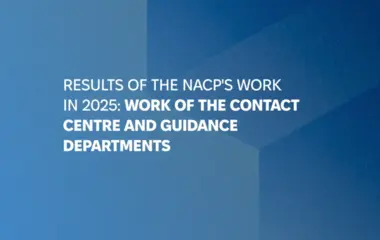The National Agency on Corruption Prevention (NACP) filed a complaint with the High Council of Justice (HCJ) against Valentyn Tomylko, a Poltava Court of Appeal judge, who closed the administrative case on the basis of the decision by the Constitutional Court of Ukraine (CCU) No. 13-r/2020.
Thus, on November 6, the Poltava Court of Appeal overturned the decision of the court of first instance and closed the proceedings in the case of late submission of declarations by an individual, based on the CCU’s Decision.
“The Court of Appeal considers that the Decision of the Constitutional Court of Ukraine abolished both criminal and administrative liability for committing acts of corruption”, the decision reads.
The NACP emphasizes that the judge made this decision without legitimate grounds.
He concluded, without proper justification, that the recognition of Art. 65 of the Law of Ukraine on Prevention of Corruption unconstitutional entails the abolition of criminal liability under Art. 366-1 of the Criminal Code of Ukraine, which was the subject of consideration in the Decision of the CCU No. 13-r/2020, as well as administrative, civil and disciplinary liability.
Thus, it is seen that the judge, due to obvious negligence, committed a gross violation of the law, which led to significant negative consequences.
By its Decision, the CCU declared Art. 65 of the Law of Ukraine on Prevention of Corruption unconstitutional, which defined only the types of liability for committing corruption or corruption-related offenses.
The NACP notes that the Decision of the CCU does not fully abolish an individuals’ liability for committed corruption or corruption-related offenses.
Liability for administrative corruption-related offenses is established by the Code of Ukraine on Administrative Offenses. In particular, Art. 172-6 ‘Violation of Financial Control Requirements’ is currently in force, and its compliance with the Constitution of Ukraine has not been considered. Therefore, liability for corruption-related offenses has not been abolished.
Additionally, the CCU did not revoke the powers of specially authorized anti-corruption actors – that is, the Prosecutor’s Office, the National Police and the National Anti-Corruption Bureau of Ukraine. Unlike the NACP, they can continue detecting signs of corruption or corruption-related offenses and submit materials to court.
 The NACP appealed to the High Council of Justice with regard to a Poltava judge who decided to close a case because “Based on the CCU’s Decision both criminal and administrative liability for committing acts of corruption were abolished”
The NACP appealed to the High Council of Justice with regard to a Poltava judge who decided to close a case because “Based on the CCU’s Decision both criminal and administrative liability for committing acts of corruption were abolished”
 The NACP appealed to the High Council of Justice with regard to a Poltava judge who decided to close a case because “Based on the CCU’s Decision both criminal and administrative liability for committing acts of corruption were abolished”
The NACP appealed to the High Council of Justice with regard to a Poltava judge who decided to close a case because “Based on the CCU’s Decision both criminal and administrative liability for committing acts of corruption were abolished”
 The NACP appealed to the High Council of Justice with regard to a Poltava judge who decided to close a case because “Based on the CCU’s Decision both criminal and administrative liability for committing acts of corruption were abolished”
The NACP appealed to the High Council of Justice with regard to a Poltava judge who decided to close a case because “Based on the CCU’s Decision both criminal and administrative liability for committing acts of corruption were abolished”
 The NACP appealed to the High Council of Justice with regard to a Poltava judge who decided to close a case because “Based on the CCU’s Decision both criminal and administrative liability for committing acts of corruption were abolished”
The NACP appealed to the High Council of Justice with regard to a Poltava judge who decided to close a case because “Based on the CCU’s Decision both criminal and administrative liability for committing acts of corruption were abolished”









